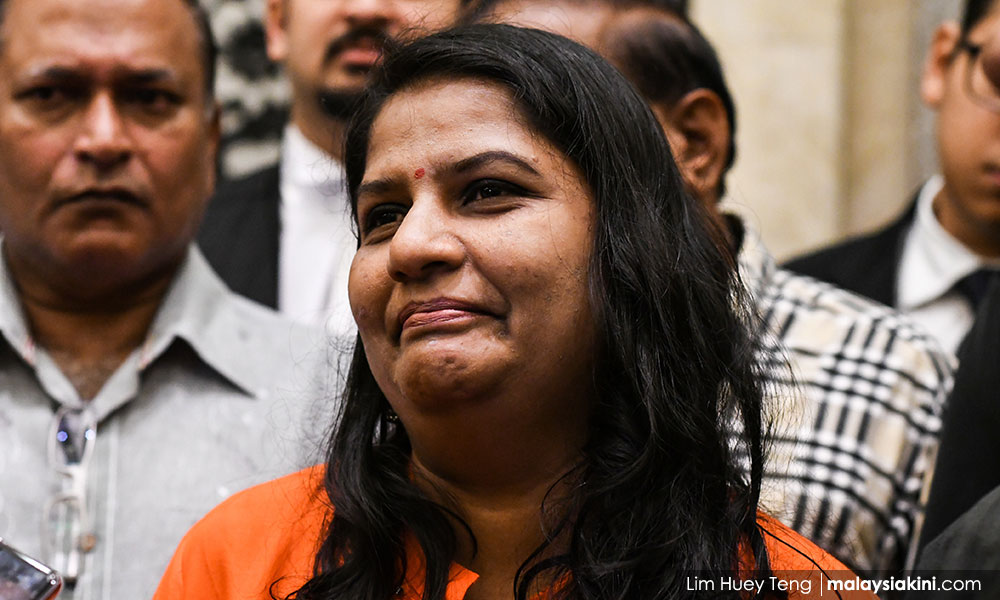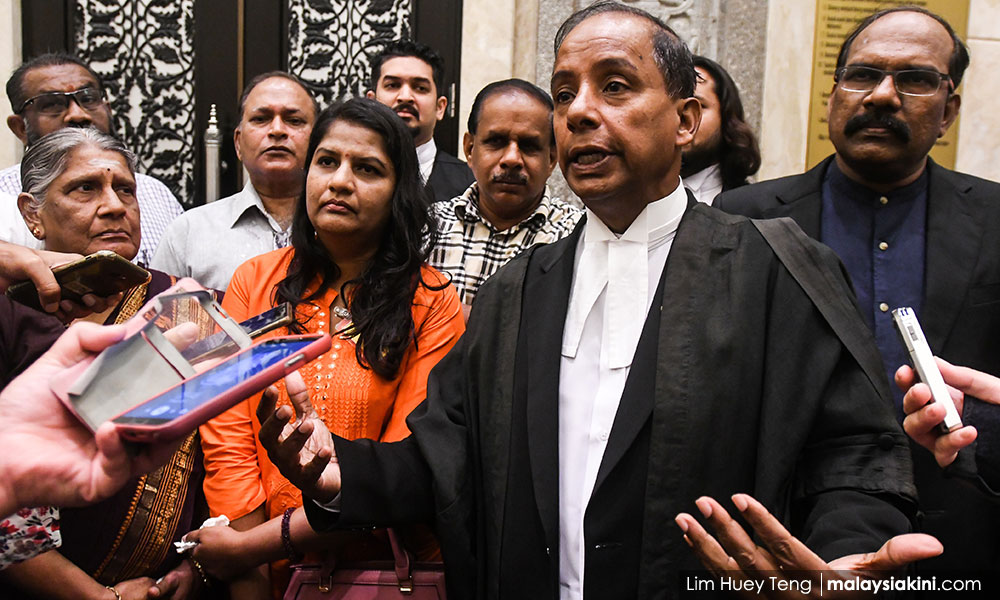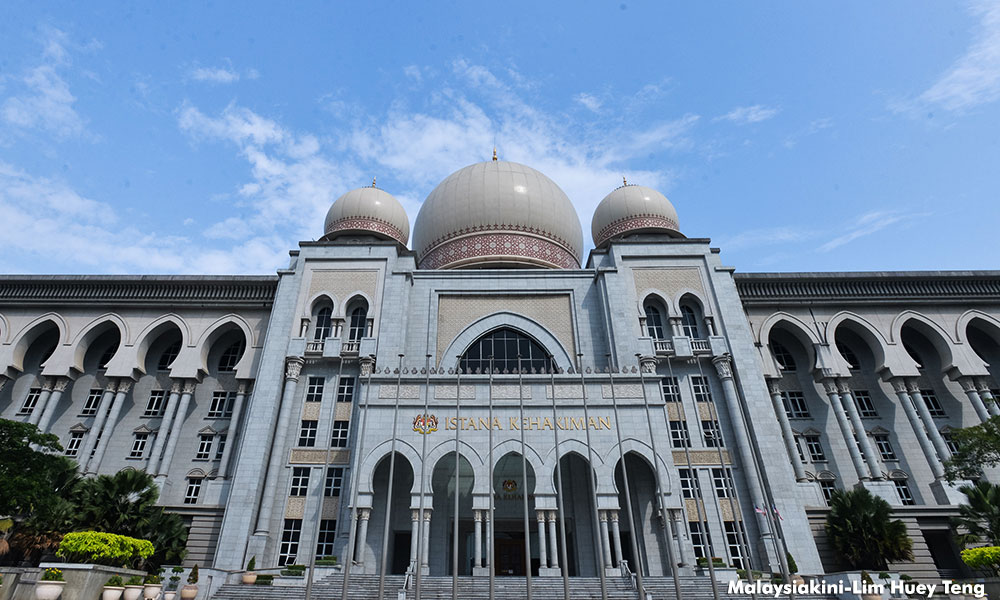
G25, a group comprising retired top civil servants, has lauded the Federal Court’s decision in the M Indira Gandhi case for its interpretation of the word "parent," and in clarifying the jurisdiction limits of the Syariah Court.
“The Federal Court has now correctly interpreted the word 'parent’ in Article 12(4) (of the Federal Constitution) to mean both the father and mother of the child where both parents are still alive.
“The Federal Court in its landmark judgment has rightly seized the opportunity to clarify the limits of the jurisdiction of the Syariah Court,” the group said in a statement on Tuesday.

According to G25, the jurisdiction limits of the Syariah Court have been misunderstood by some since the introduction of Clause (1A) into Article 121 in 1988, which includes certain civil court judges who had “erroneously” declined jurisdiction in favour of the Syariah Court when dealing with cases that had some Islamic elements.
The group pointed out that with the landmark decision, the jurisdiction of the Syariah Court is limited to:
a) The Syariah Court may not exercise the inherent judicial powers of the civil courts, including the power of judicial review;
b) The Syariah Court’s jurisdiction is confined to the persons and subject matters listed in the State List;
c) The jurisdiction of the Syariah Court must be provided for under the relevant state legislation; and,
d) Clause (1A) does not constitute a blanket exclusion of the jurisdiction of civil courts whenever a matter relating to Islamic law arises. The inherent judicial power of civil courts in relation to judicial review and questions of constitutional or statutory interpretation are not and cannot be removed by the insertion of Clause (1A).
Clause (1A) states that civil courts shall have “no jurisdiction in respect of any matter within the jurisdiction of the syariah courts.”
Constitutional law principles upheld
G25 also noted that the landmark ruling had upheld several important constitutional law principles.

“We are heartened to note that the Federal Court in its judgement has not only accorded justice to Indira but has also reaffirmed... constitutional law principles of great importance,” it said.
The group stated that the principles affirmed by the decision include that the judicial power is vested exclusively in the civil high courts under Article 121(1).
The jurisdiction of the civil courts cannot be confined to federal law, it added, as it will inevitable be engaged in the interpretation and enforcement of all laws in the country, "and any other source of law recognised by our legal system.”
Another principle is that judicial power - in particular, the power of judicial review - is an essential feature of the basic structure of the constitution, and that feature in the basic structure cannot be abrogated by Parliament by way of an amendment.
On Monday, the Federal Court had ruled to annul the unilateral conversion of Indira’s three children by her ex-husband who had also converted to Islam.
The five-member panel ruled that the permission of both parents is needed in changing the faith of the child. -Mkini
No comments:
Post a Comment
Note: Only a member of this blog may post a comment.